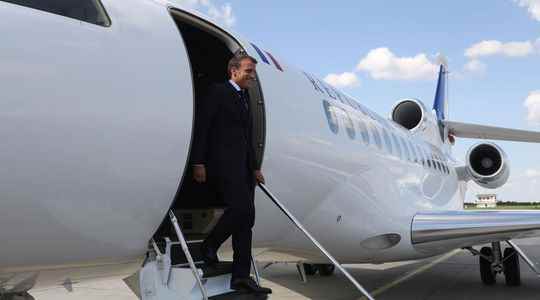The meeting will be scrutinized down to the smallest detail. The unstoppable Paul Biya, 89, including 40 at the head of Cameroon, will he roll out the red carpet for Emmanuel Macron on July 25 in Yaoundé? Will the two men opt for a sober handshake or a warm hug? What will be the words and the tone chosen by the French president? The turn is not easy to negotiate for Paris, which has so far remained at a distance from the Cameroonian autocrat, symbol of an old Françafrique to be banished, according to Emmanuel Macron.
At the Elysée, it is assured that this visit will mark “the continuity and constancy of the commitment of the President of the Republic in the process of renewing the relationship with the African continent”. Central Africa’s main economy, Cameroon is the first leg of the tour that will take him to Benin and Guinea-Bissau until July 28.
Strategic choice
“These three states were obviously not chosen at random, analyzes Bakary Sambe, regional director of the Timbuktu Institute, a think tank based in Dakar and Bamako. Cameroon is a very strategic country located in the Lake Chad basin, facing the terrorist threat from Boko Haram in the north. It borders Chad – a pillar of the French military system – and coveted by Russia, with which it has signed a military cooperation agreement. As for Benin, it is on the way to becoming a new coastal epicenter of the terrorist threat from the Sahel Finally, Guinea-Bissau has recently chaired ECOWAS (Economic Community of West African States), an increasingly important partner of France in the region. since the collapse of the G5 Sahel, three of the five member states of which are now in military hands: Mali, Burkina Faso and Chad.
On the menu of discussions, the food crisis, which the continent is facing in the wake of the war in Ukraine. Objective: to strengthen strategic agricultural sectors with a view to food sovereignty. Cameroon will be the “test state” of this project. “It is a large agricultural country, whose production is likely to supply the consumption of all the countries of the region (…), a country which has a private sector and a particularly structured employers, in particular on the agricultural issues”, specifies the Elysée. An economic delegation will accompany the president to make investments in this area a reality.
Air support
Another priority is insecurity, a major concern in Cameroon as in Benin. In addition to the terrorist threat from Boko Haram, English-speaking separatist movements have taken up arms in the northwest and southwest of Cameroon, where they are severely repressed. In Benin, jihadist incursions are increasing. The visit of the French president will be an opportunity to discuss possible tricolor support for this country, as part of the ongoing reorganization of Operation Barkhane in the Sahel. At this stage, sending troops on the ground is not envisaged. “There is, on the other hand, a request for French support in terms of air support, intelligence and equipment,” says Paris.
On this highly inflammable subject, the score promises to be complicated for Emmanuel Macron, in a context of growing hostility to the French military presence on the continent. His entourage insists that France will only respond to any “requests” expressed by the States concerned.
The Head of State also exposes himself to criticism by choosing Cameroon as his first destination. “It is a bit surprising to see the French president begin the first visit to Africa of his second term in a country led by a president in power since 1982. This regime is not really a symbol of renewal or good democratic health” , observes Alain Antil, director of the Sub-Saharan Africa Center of the French Institute of International Relations. Paris ensures that questions relating to the rule of law will not be evaded, but that they will be dealt with “without media injunction, in the form of direct exchanges” with its counterpart.
Memory issues
The Elysée tenant could also be questioned on this subject by young Cameroonians with whom he will discuss in Yaoundé, on July 26, during a dialogue similar to that of the Africa-France summit in Montpellier, last October. Summit participants will also be present there to present the work carried out since this meeting. They will concern in particular the issues of history and memory, dear to Emmanuel Macron.
Under his first five-year term, the president acknowledged the “overwhelming” responsibility of France in the genocide of Tutsis in Rwanda (1994) and that of the French army in several assassinations perpetrated during the colonial period and the war of independence in Algeria . In Cameroon, the subject is particularly sensitive. Several thousand anti-colonialist fighters from the Union des populations du Cameroun (UPC), but also ordinary civilians, were allegedly massacred by the French army or with its backing in the 1950s and 1960s. This story, long passed over in silence, will certainly be on many minds in Yaoundé.
